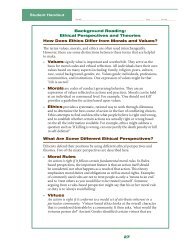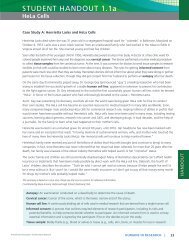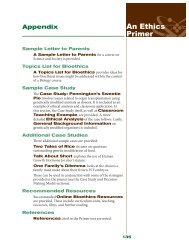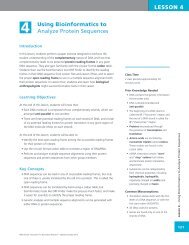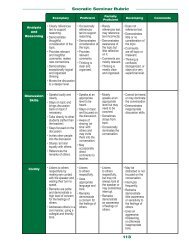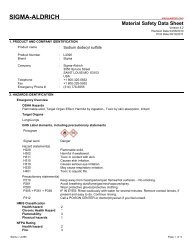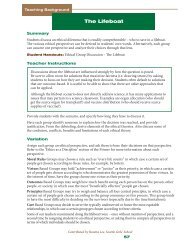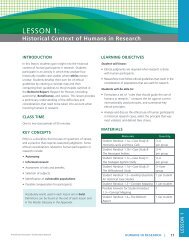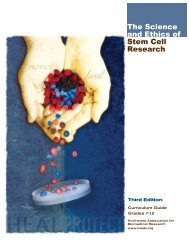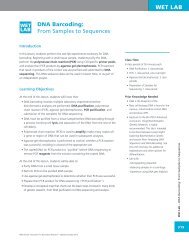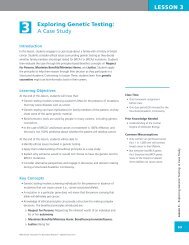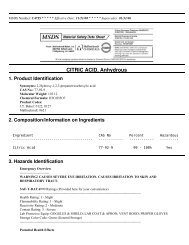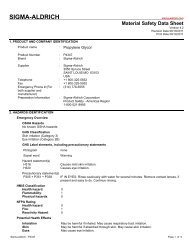Ethics: A Primer for Non-Ethicists (PDF) - ASPB News
Ethics: A Primer for Non-Ethicists (PDF) - ASPB News
Ethics: A Primer for Non-Ethicists (PDF) - ASPB News
Create successful ePaper yourself
Turn your PDF publications into a flip-book with our unique Google optimized e-Paper software.
(4) "The Bible tells me so."<br />
Religon and ethics is closely linked. <strong>Ethics</strong> is a part of all major religions.<br />
However, ethics is not identical with religion; ethical reasoning must be<br />
understandable outside the framework of particular religious beliefs. For<br />
example, to say "I would do this because the Bible tells me so" is not an ethical<br />
answer. Over the centuries, people have interpreted the Bible differently. To<br />
make an answer based on the Bible into an ethical statement, one would have to<br />
explore the reasons why the Bible makes this statement and then explain this in<br />
terms meaningful to someone with a different interpretation of the Bible or no<br />
experience of the Bible at all. The statement that ';God said this" is inherently<br />
unsatisfactory because it falls back on a legal/ policy/ authoritarian approach. It is<br />
also particularly unsuitable <strong>for</strong> providers in a multicultural society. An ethics<br />
based interpretation of religious approaches almost inevitably uses principles or<br />
relationships.<br />
(5) "I disapprove of this!"<br />
This statement appears frequently in answers to questions about sex selection.<br />
This knee-jerk response includes no ethical reflection whatsoever, merely the<br />
emotion of the moment. Although ethical principles may underlie the response, it<br />
is not an ethical statement in itself.<br />
Examples of Ethical Statements<br />
Ethical statements may be based on 1) principles; 2) action-rules or action<br />
guides which are in<strong>for</strong>mal statements based on principles; 3) relationships; or 4)<br />
a combination. The principles-based approach is most common in ethical<br />
textbooks and discussions. . The action guide approach appears to be most<br />
common in geneticists' actual reasoning, at least according to the survey<br />
responses of almost 800 U.S. geneticists and counselors.<br />
In biomedical ethics, five general principles are commonly discussed:<br />
Five general principles provide the foundation <strong>for</strong> most reasoning in<br />
biomedical ethics:<br />
1. Autonomy (Respect <strong>for</strong> Persons): the duty to respect the self-determination<br />
and choices of autonomous persons, as well as to protect persons with<br />
diminished autonomy, e.g., young children, mentally retarded persons, and those<br />
with other mental impairments.<br />
2. <strong>Non</strong>-maleficence: the obligation to remove or minimize harm, to persons and<br />
wherever possible to remove the causes of farm altogether.



